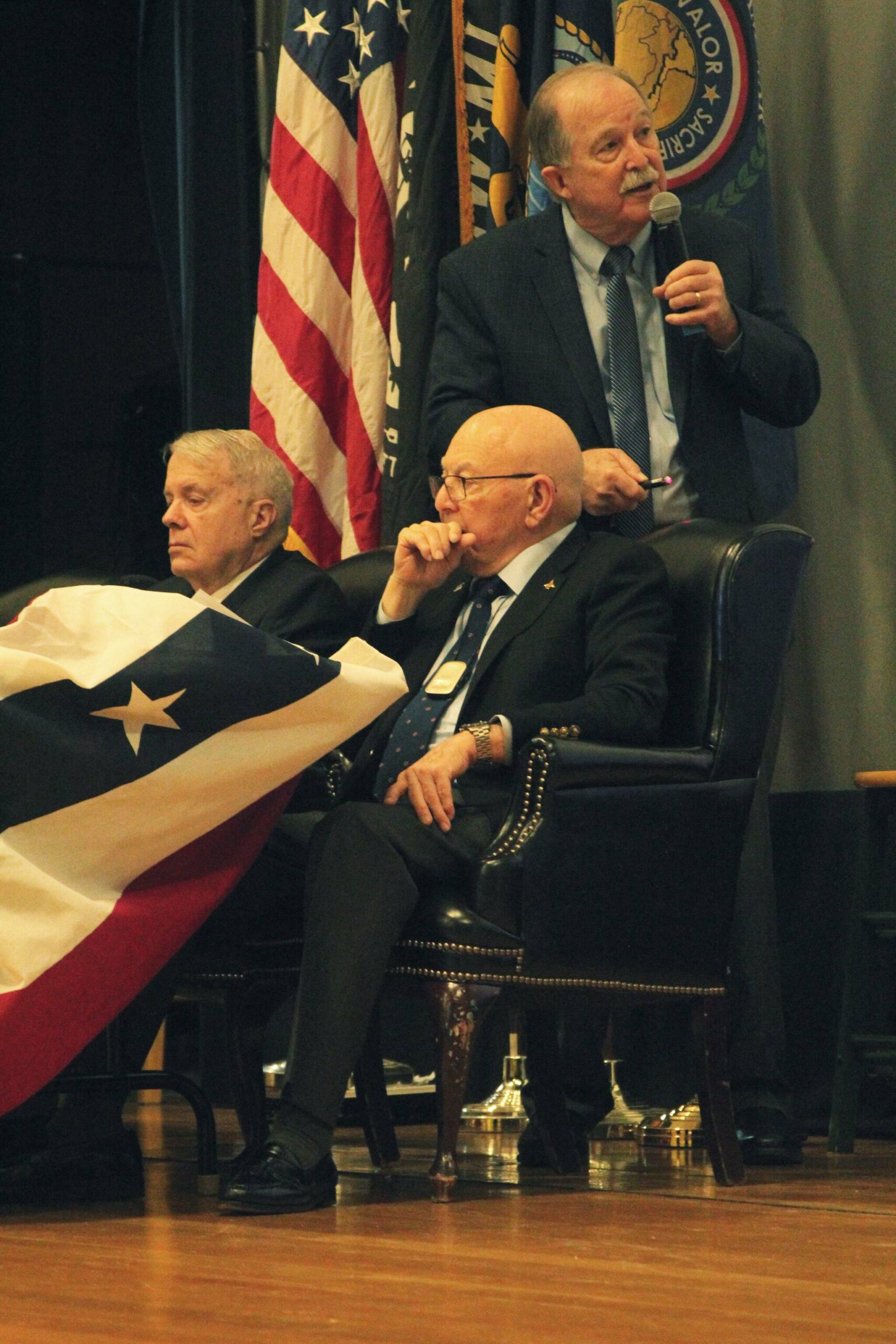Major Joe Crecca hovered 600 feet above the ground in his parachute, descending slowly toward the Vietnamese troops that were about to become his captors.
It was Nov. 22, 1966, and the Vietnam War was in full swing. Crecca and his fellow Air Force aviator, Gordon Scott Wilson, were shot down over North Vietnam during a mission, when Crecca was just 100 days in the country.
Crecca, 26 years old at the time, twisted around in the air to face Wilson, who was already dead in his parachute. Crecca saluted his friend and whispered, “So long, Scotty.”
“I could see my name appearing on a KIA list right below his,” Crecca said. It was one of his final thoughts before he landed among the Vietnamese.
That was the first day of six and half years that he would spend as a prisoner of war.
Crecca was one of three guests honored on base at Naval Air Station Whidbey Island this week during a symposium commemorating the 50th anniversary of Operation Homecoming, or the repatriation of U.S. military survivors who were held captive by the North Vietnamese during the Vietnam War.
He and his fellow presenters, military aviators Col. Bill Reeder of the U.S. Army and Capt. Bill Wilson of the U.S. Air Force, shared their experiences as prisoners of war during the Vietnam War during the event on base on Thursday.
U.S. involvement in the war ended 50 years ago in early 1973. The base has planned and hosted a number of events recognizing the anniversary, such as the commemoration in January of the last aircrew from NAS Whidbey lost during the war.
Crecca shared with Navy personnel and civilians at Thursday’s event that upon landing on that day in 1966, he was beaten soundly then driven to Hanoi, where he underwent further torture as the North Vietnamese attempted to get information out of him.
While imprisoned, Crecca did his best to glean what information he could, such as the locations of the prisoner of war camps and the names of other prisoners. Crecca described himself as a memory bank for these names — he learned over 250 names of prisoners of war and taught them to other prisoners.
Reeder was shot down and captured by the Viet Cong in South Vietnam. He suffered severe injuries in the crash, including breaking his back, wounding his ankle and burning the back of his neck when his helicopter exploded. He managed to evade the enemy for three days before he was apprehended and interrogated. Like Crecca, Reeder was tied up in ropes and tortured for information.
Reeder was kept in a prisoner of war camp that consisted of bamboo cages in the jungle. There, he shared, he was locked in stockades for long hours, confined in cramped quarters with dozens of other prisoners, starved and given water infested with parasites. Reeder developed many diseases and began losing weight rapidly.
After a time, Reeder and the other prisoners were marched north, shoeless and tied together, for three months along the Ho Chi Minh trail and delivered to other camps in North Vietnam.
“I was the last U.S. Army prisoner of war taken in the Vietnam War who survived,” Reeder said.
Like Crecca, Wilson was shot down over North Vietnam. His aircraft in flames and falling apart around him, Wilson ejected from the plane. He was captured on the ground — Wilson recalled being stripped of his boots, flight suit, guns and other possessions before being tied up, blindfolded and driven to Hanoi. He was held at a camp in Hanoi for 100 days before being rescued. He was 24 years old at the time.
Crecca said despite the many harrowing experiences he went through, what kept him going was his sense of humor, determination and faith — faith in God, country, family and self.
“I will never forget the friendships that were forged under the most difficult of circumstances with the best men in the world,” Crecca said.
Capt. Eric Hanks, commanding officer of NAS Whidbey, said it is important to remember these events, however distressing, because it ensures a better future and improved leadership.
“We’ll get better because of these experiences,” he said.



